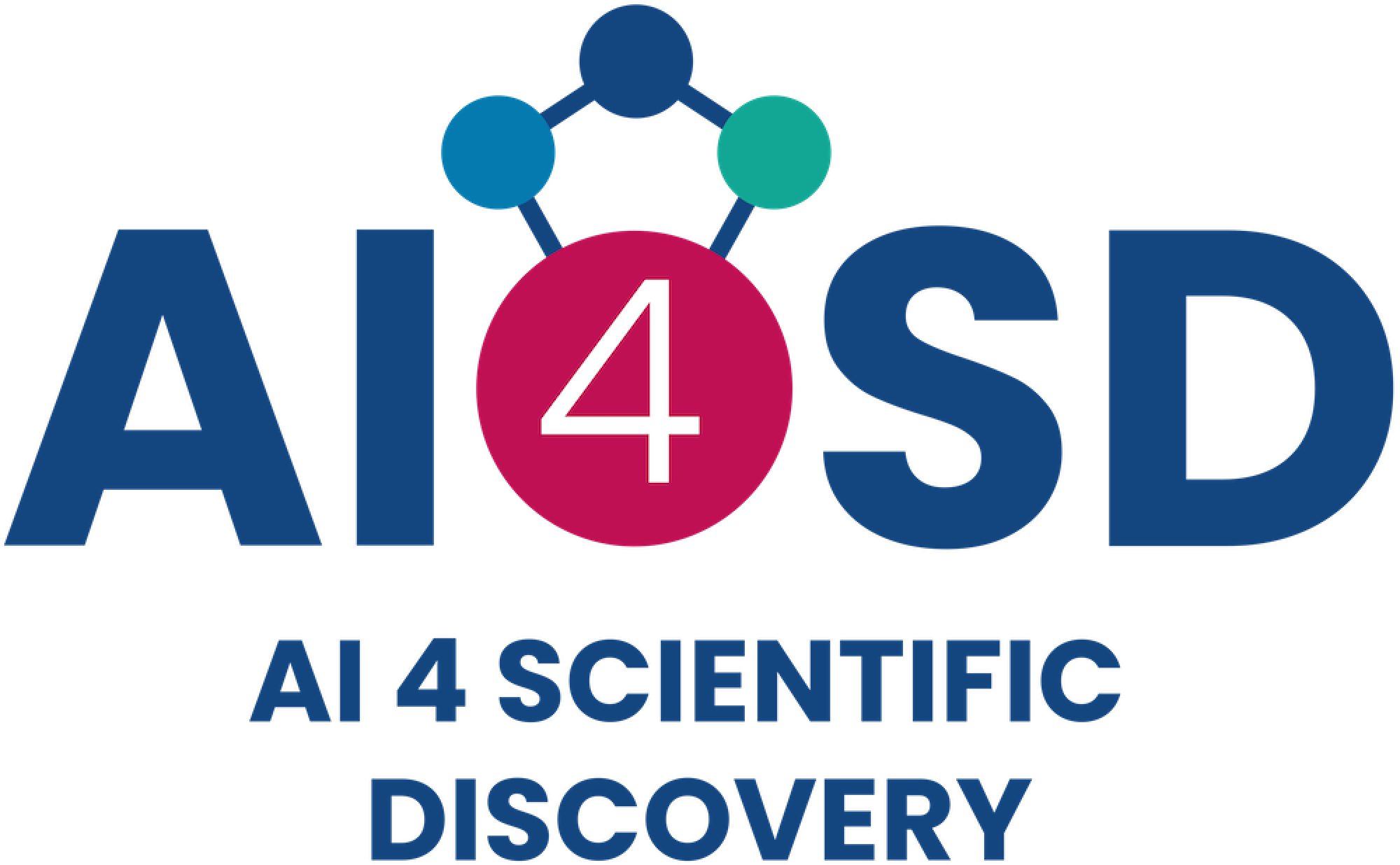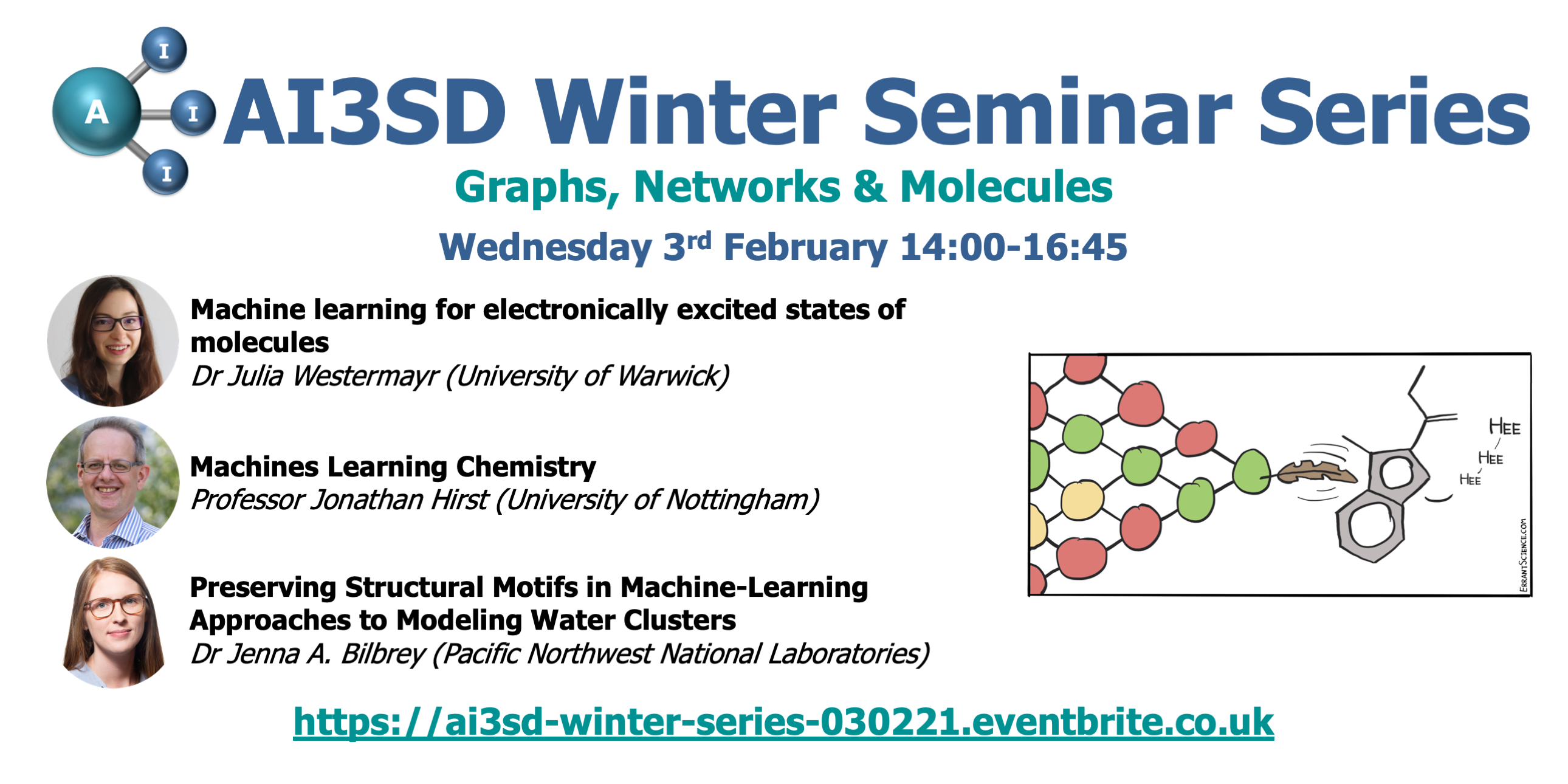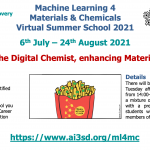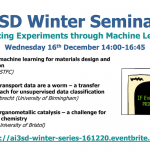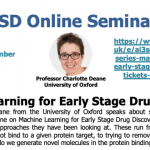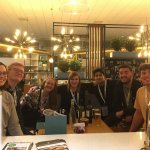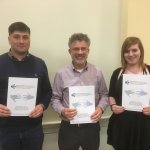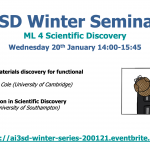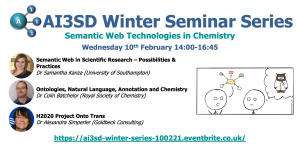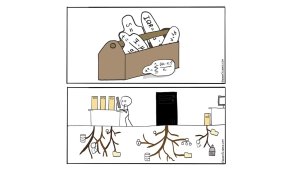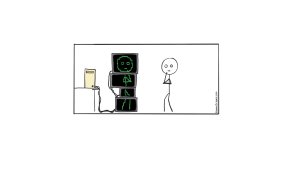This seminar was the fifth of ten in our AI3SD Winter Seminar Series. This seminar was hosted online via a zoom webinar. The event was themed around Graphs, Networks Molecules, and consisted of two talks on this subject. Below are the three videos of the talks with speaker biographies, and the full playlist of this seminar can be found here.
Machine learning for electronically excited states of molecules – Dr Julia Westermayr (University of Warwick)
I am a postdoctoral research fellow developing machine learning models to study photoplasmonic catalysis since Oct. 2020. My main goal is to enable computationally efficient and accurate nonadiabatic dynamics simulations by decoupling the costs of accurate quantum chemistry calculations from the dynamics simulations. Therefore, I aim to fit potential energy surfaces, forces, and related properties (dipole moments, nonadiabatic coupling vectors, electronic friction tensors,…) of molecules and materials based on first principle reference data.
Machines Learning Chemistry – Professor Jonathan Hirst (University of Nottingham)
Professor Jonathan Hirst obtained his B.A. in chemistry from Oxford University in 1990. He received his Ph. D. from London University in 1993, under the supervision of Dr. Michael Sternberg at the Imperial Cancer Research Fund. He spent the following three years as a postdoctoral research associate in the United States with Professor Charles Brooks III, first at Carnegie Mellon University, Pittsburgh, and subsequently at The Scripps Research Institute, La Jolla, as a recipient of a Human Frontiers Long-term Fellowship. In 1996, he was promoted to Assistant Professor. In 1999, he was appointed as a Lecturer in Computational and Theoretical Chemistry at the University of Nottingham. In 2002, he was promoted to Reader and in 2004 to Professor in Computational Chemistry. In 2012, he became the Head of the Department of Physical and Theoretical Chemistry. In Aug 2013, he relinquished this role to become the Head of the School of Chemistry, concluding a four-year term in 2017. In 2020, he was awarded a Royal Academy of Engineering Chair in Emerging Technologies.
DOI Link
Preserving Structural Motifs in Machine-Learning Approaches to Modeling Water Clusters – Dr Jenna A. Bilbrey (Pacific Northwest National Laboratories)
Jenna (Bilbrey) Pope is a data scientist at Pacific Northwest National Laboratory. She graduated with her Ph.D. in chemistry from the University of Georgia in 2014, and now uses her knowledge of computational chemistry to explore machine-learning approaches for chemical systems. Code for her projects can be found at https://github.com/jenna1701.
